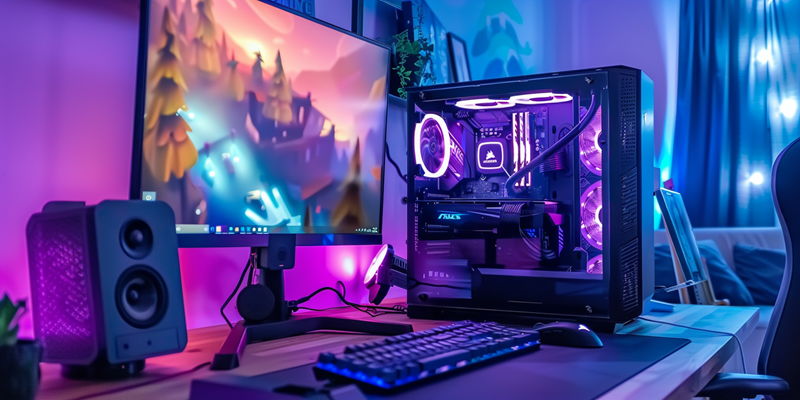The tech industry marches to the beat of innovation, particularly within the realm of PC gaming where the next big thing is always just around the corner. In this evolving landscape, NVIDIA has stepped up to influence the shape of future gaming rigs. Recognizing a surge in demand for Small Form Factor (SFF) gaming PCs, they’ve set the stage for a revolution. By standardizing the design of these pint-sized powerhouses, they’re aiming to balance the allure of compactness with the uncompromised performance that enthusiasts expect.
NVIDIA’s SFF-Ready Specifications
The Vision for Space-Efficient Gaming
NVIDIA’s SFF-Ready Enthusiast GeForce Card initiative is a game-changer for builders aiming to economize on space without skimping on performance. The guidance sets forth a specific blueprint: graphics cards are confined to dimensions of 304x155x50mm, ensuring they utilize no more than 2.5 slots. By cementing these dimensions, NVIDIA has hashed out a formula that promises to facilitate the crafting of compact yet mighty gaming systems.
Affording gamers the opportunity to construct setups conducive to smaller areas, these guidelines conjure images of lean, space-friendly gaming stations without the traditional bulk. NVIDIA’s push for standardization is a nod towards a maturing market. Space constraints no longer signal a compromise in functionality or gaming intensity—the SFF revolution is here to ensure that the thrill of high-end gaming fits neatly into the modern living space.
A Unified Front with AIB Partners
NVIDIA isn’t charging into this new territory alone; they’ve rallied a coalition with their AIB (add-in board) partners. Renowned players such as ASUS, GALAX, and MSI are on board, brandishing compliant designs to align with NVIDIA’s vision. The spotlight particularly shines on the RTX 4080 SUPER and 4070 series cards, which stand out as the enthusiast-grade vanguards for this initiative. Meanwhile, cards like the RTX 4060 series extend an olive branch to mainstream builders, ensuring broad appeal across the spectrum of PC gamers.
This alliance heralds a new dawn. By setting these enthusiast-grade components within a standardized framework, NVIDIA and its AIB partners pave the way for more predictable yet innovative SFF PC builds. It’s about redefining boundaries and sculpting a market that’s ripe for the picking—a compact era of gaming is forming under NVIDIA’s guidance, primed and ready for the diverse needs of the modern gamer.
Collaboration with PC Case Manufacturers
Building a Home for Next-Gen Graphics
Synchronizing the efforts of graphics card engineers with those who design their housing is crucial. In keeping with their comprehensive approach, NVIDIA has not overlooked this. They’ve enlisted the expertise of leading PC case manufacturers—names like ASUS and Cooler Master—to develop chassis that dovetail with the design guidelines. These cases boast a minimum of 312×154.5x50mm clearance, precisely enough to cradle NVIDIA’s SFF-Ready Enthusiast GeForce cards like a glove.
The collaboration ensures that the birth of NVIDIA’s SFF graphics cards is complemented by a new breed of PC cases, tailored to house innovation. By specifying the minimum spatial requirements, NVIDIA makes certain that the users’ journey in constructing their dream SFF PCs is smooth sailing. Following these guidelines not only caters to the user’s spatial aspirations but also to their craving for a high-performance gaming experience unmarred by the limitations of their environment.

